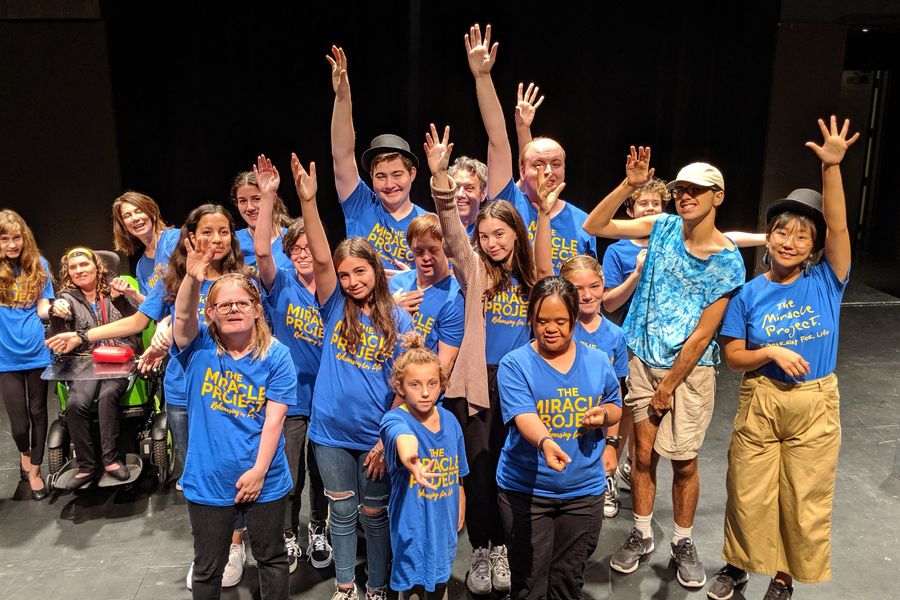
Triple Threat (Online)
About
Special Needs
TMPs programming is specifically tailored to build on the strengths of neurodivergent participants with a wide-range of life experiences. Some participants are significantly impacted by their developmental delays and need specialized support navigating their environments, while others are academically high-achievers but are severely challenged by their social anxiety. TMP also serves many participants who identify as multimodality communicators, meaning they are minimally speaking or non-speaking and communicate through alternate methods, including augmentative and alternative communication (AAC) devices. These participants, many of whom type to communicate, are often excluded from music and performance-based programs because funders and even social service agencies fail to recognize the efficacy of the expressive/performing arts in enhancing communication among non-speaking individuals.
TMP’s artistic home, The Wallis Annenberg Center for the Performing Arts, is an ADA accessible building, meaning that our students with physical limitations are able to attend all of our classes and programs, ensuring that TMP can serve a diverse group of individuals who do not always have access to arts education programs. Additionally, TMP offers sensory friendly performances and community events, which allows for audience members who are prone to physical dysregulation and sensory overload to participate.
Deals
Though TMP’s programs are tuition-based, most participants qualify for services funded by the California Department of Developmental Services (DDS) through their local Regional Center or through the DDS’s Self-Determination Program.
While some of TMP’s classes are not currently covered by Regional Center or Self-Determination funding, TMP’s administration is actively pursuing alternate funding options including a new regional center vendor code which will allow families to use DDS funding for additional expressive and performing arts classes.
Additionally, partial, and in some cases, full scholarships are available to families who do not qualify for this funding on account of the participant’s diagnostic profile. Scholarships are offered based on financial need, and individualized payment plans are available to all families so cost is not prohibitive to participation.